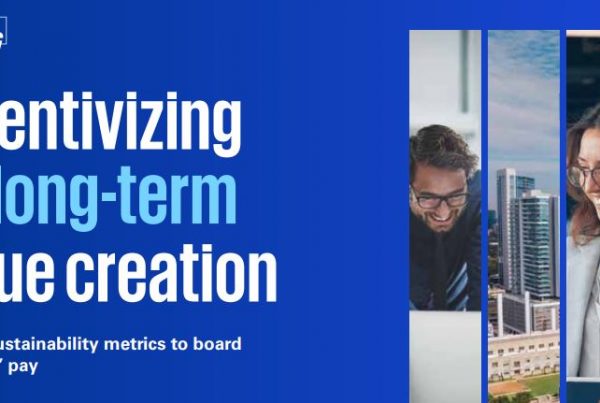
Insights from 6 companies that transformed their models in 2020
Though the COVID-19 pandemic has caused various obstacles for businesses, some companies saw an opportunity to rethink their models and work towards environmental, social and good governance objectives. Drawing on such examples, The ESG Foundation invites you to reflect on 6 ways you too could enhance your businesses’ ESG performance.
Environmental
- Reduce waste by repurposing unused products
Brewdog is the first carbon negative beer in the world and it intends to double remove its carbon footprint through partnerships like the Woodland Trust and the creation of the 2,000 acre ‘BrewDog Forest’, the largest native forest in the UK. Among many other sustainability-related achievements, Brewdog has decided to launch an e-commerce platform to re-label and sell unused cans. Indeed, Brewdog estimates that every year almost a billion of their drinks go to waste because of forecasting and production issues. Furthermore, BrewDog Ellon (Scotland) will use an anaerobic digester to convert wastewater into clean water and generate CO2 to carbonate beers.
- Cut your carbon footprint
Innocent drinks is building a $250m carbon neutral plant at the Port of Rotterdam in the Netherlands. It is estimated that the location of ‘the blender’, as the production site is nicknamed, will save 13,000 truck journeys. Atos, a digital transformation company, will be delivering an end-to-end technology solution for the plant to enhance efficiency, security and energy consumption to support its decarbonisation goals. Additionally, Douglas Lamont, CEO, is also co-chair of the Better Business Act, a campaign backed by over 400 UK companies with the aim to change UK law to encourage companies to be more ESG aligned.
Social
- Take a stance on a social issue
The expectation for brands to take a stand on social issues is greater now than ever before. Ben & Jerry’s leads the way with its social mission and corporate activism, in spite of its somewhat controversial Unilever acquisition in 2000. The company has always been vocal on social issues including voting rights, LGBTQ+ rights and racial justice. $2.5 million goes to grassroots causes annually through the Ben & Jerry’s Foundation. In June 2020, following the murder of George Floyd by police, Ben & Jerry’s issued a strong corporate statement with the headline We Must Dismantle White Supremacy, outlining steps needed to be taken.
- Use your expertise to provide free services for essential workers
During lockdown, Car & Away (“the AirBnB for cars”) launched Karshare, a free community car-sharing scheme to support essential workers move around Bristol at a time when travel was restricted. Karshare fully cleans and insures the cars given by locals and lends them to frontline workers and charities, before returning them a week later and fully cleaned to their owners.
Governance
- Re-define your code of ethics in collaboration with stakeholders
Change Healthcare is a healthcare technology company that offers insights, solutions and innovative technologies to strengthen healthcare systems. In 2020, the organisation’s legal and compliance team won several compliance and ethics awards, particularly for achievements in independent audit, compliance and supervision of ESG risks. One notable achievement is their annual updating of their ‘Integrity of Change’ code of conduct and related training, which engages extensively with employees. The team solicits feedback using focus groups and message boards. Their multi-media approach and training, which includes real-life “what would happen” situations, has been applauded by employees, contractors and observers alike.
- Engage in meaningful conversations with your board of directors
Despite the switch to virtual AGMs during the pandemic, the American International Group (AIG) improved relations with shareholders through a continuous engagement program. The multinational finance and insurance group’s Senior Vice President Rose Marie Glazer continued to hold regular meetings, ensuring the participation of shareholders in all discussions, as well as their comprehensive understanding of the objectives by providing materials and presentations prior. Collaborating with HR and stakeholders, Glazer was able to reach a compromise on compensation. Additionally, AIG implemented new questionnaires for board evaluations and new matrices to monitor progress towards regulatory responsibilities.
Over a year into the pandemic, it is evermore clear that companies must adapt to new models of stakeholder engagement and sustainability strategies. Find out more about how your favourite companies are redefining their models to meet ESG objectives.
Has COVID-19 sparked a transformation in your company? What types of change do you hope to see in businesses around you? Share your thoughts with the ESG Foundation.



